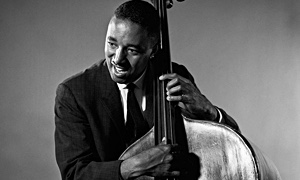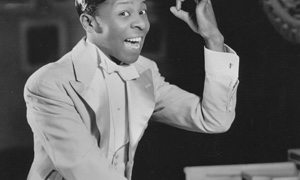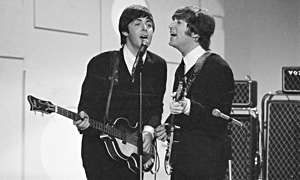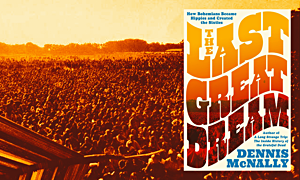Home » Jazz Articles » Book Review » Leon Russell: The Master of Space and Time's Journey Thr...
Leon Russell: The Master of Space and Time's Journey Through Rock & Roll History
Bill Janowitz illuminates the disparity between the public perception and the private realities of the galvanizing but often conflicted figure who is Leon Russell.
 Leon Russell: The Master of Space and Time's Journey Through Rock & Roll History
Leon Russell: The Master of Space and Time's Journey Through Rock & Roll History Bill Janovitz
592 Pages
ISBN: #978-0306924774
Hachette Book Group
2023
A quick perusal of the late
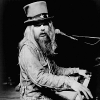
Leon Russell
pianob.1942
Whether it's in discussing Russell's stage fright, mental health or physical frailties, the author is as candid on those topics as his subject (who passed in 2016), not to mention the friends, family and collaborators Janovitz also interviews. The least of the revelations here are actually the author's elucidations of his subject's interactions with ultra-famous names including

Bob Dylan
guitar and vocalsb.1941

George Harrison
guitar1943 - 2001

Eric Clapton
guitar and vocalsb.1945
Those superstars, for instance, all appeared on Leon Russell's eponymous solo debut of 1970, but their participation was no less carefully orchestrated by the frontman than his earlier contributions to recordings overseen by Phil Spector and the other sessions to which he lent his instinctive skills as a musician and arranger (for instance,

The Byrds
band / ensemble / orchestraThis biographer, a member of the band Buffalo Tom, adopts just the right pace in his chronicle of The Master of Space and Time. His prose proceeds at such a fleet pace that he covers large swathes of Leon Russell's history without belaboring the salient points or including so much minutiae to deliberately impress the reader with the considerable depth and breadth of his knowledge.
To the latter end, it's perfectly natural, not to mention wholly laudable, that he includes details such as bonus cuts included on reissues of Russell's CDs. The author is scrupulous in his sourcing and acknowledgments, but that also renders confounding the absence of a discography (to Janovitz's credit, however, there is thorough annotation of sources plus an extensive bibliography).
The writer is also astute in not belaboring recurring themes here. On the issue of the man's mental health, after an early reference to Russell's apparent bipolar disorder, the writer only circles back to the topic as necessary, usually in order to clarify the upside of the condition as it elevated the artist's theatrical flair in performance. And while in many of the later 41 chapters, examination of Russell's profligate nature becomes a persistent theme, it is no less so than that of the forward-thinking tech savvy that leads Russell to the building of recording facilities in homes from Los Angeles to Oklahoma to Nashville.
Because Bill Janovitz is never too meticulous for his own good, the narrative here effectively proceeds by leaps and bounds through its 500-plus pages. Thus, it's almost impossible not to get a palpable sense of the whirlwind sequence of events taking place in Leon Russell's life once he graduates from session work to an ad hoc member of " data-original-title="" title="">Delaney & Bonnie and Friends, then to his solo career, through all of which he maintained his singular, contemporary take on gospel music.
He is quickly regarded as a peer to those elevated to celebrity status long prior to his apparent coming of age as an artist and creative force. Even if, in retrospect, his relative fame as a recording artist and live performer was somewhat fleeting—however memorable remain his attention-getting spotlights at the 1971 concerts for Bangladesh—his role as a songwriter remained preeminent: cover versions of his songs, specifically and conspicuously,

George Benson
guitarb.1943
The prose in The Master of Space And Time's Journey is never so flowery as to be off- putting. Rather it's deceptively plain in descriptions of people, places and events, never more so than when the writer recounts Leon Russell's move back to his Tulsa, Oklahoma home. Headquartered there for his burgeoning Shelter Records label—co-founded with the entrepreneurial Procol Harum/Joe Cocker producer Denny Cordell—the musician used his new found wealth and fame to buy property, efforts intended to (rightly) consolidate the image of his native state as a creative epicenter comparable to Memphis or Muscle Shoals.
Purchasing the real estate also supplied Russell the chance to offer communal living quarters for the various musicians he employed as his popularity peaked with the release of his third solo album, Carney (Shelter Records, 1972). Such ownership too provided the charismatic figure a place to get away from the breakneck pace he maintained, that is, when not in the throes of paralyzing depression as described by many of those subjects of 137-some interviews woven together so artfully by the author.
Even without high-profile names included as part of the latter-day descriptions of the man's career, Bill Janovitz captures the colorful activities and personages involved in all their vivid glory. In fact, his writing almost renders redundant the photos inserted at the center of the hardcover. His narrative doesn't flag as he describes how Leon Russell's career decelerates: fitful but regular weekend touring is only the most salient aspect, but one hardly more significant than the patchwork eclectics of albums including Hank Wilson's Back (Shelter Records, 1973) and Stop All That Jazz (Shelter Records, 1974), not to mention the mixed result of his work with

Elton John
pianob.1946
Still, this chronology gives the lie to the popular but errant perception of Leon Russell as a recluse in the '80s and '90s. Neither Leon Russell's life nor career exactly ended with a flourish, but his professional and personal dissipation wasn't an inexorable slide downward either. While two years of steady touring with New Grass Revival may not have wholly resurrected Russell's concert draw, it did halt its slow and steady reduction, beside proving his earlier flirtation with country music was not the work of a mere dilettante.
Such was his enthusiastic level of engagement too as he took part in the tribute to Mad Dogs & Englishmen, arranged and overseen by the

Tedeschi Trucks Band
band / ensemble / orchestra
Joe Cocker
vocals1944 - 2014
The latter had unfortunately passed prior to the homage, but his estrangement from (arguably) his most significant collaborator is a sensitive topic in Leon Russell: The Master of Space and Time's Journey Through Rock & Roll History. Writing for Rolling Stone Magazine in December, 1970, erstwhile rock critic (and future manager of

Bruce Springsteen
composer / conductorb.1949
Tags
Book Review
Leon Russell
Doug Collette
Big Hassle
Hachette Books
Bob Dylan
George Harrison
Eric Clapton
Phil Spector
The Byrds
Rolling Stones
Delaney & Bonnie and Friends
george benson
Carpenters
Elton John
New Grass Revival
Tedeschi-Trucks Band
joe cocker
Bruce Springsteen
Comments
PREVIOUS / NEXT
Support All About Jazz
 All About Jazz has been a pillar of jazz since 1995, championing it as an art form and, more importantly, supporting the musicians who make it. Our enduring commitment has made "AAJ" one of the most culturally important websites of its kind, read by hundreds of thousands of fans, musicians and industry figures every month.
All About Jazz has been a pillar of jazz since 1995, championing it as an art form and, more importantly, supporting the musicians who make it. Our enduring commitment has made "AAJ" one of the most culturally important websites of its kind, read by hundreds of thousands of fans, musicians and industry figures every month.





 Buy Now
Buy Now






